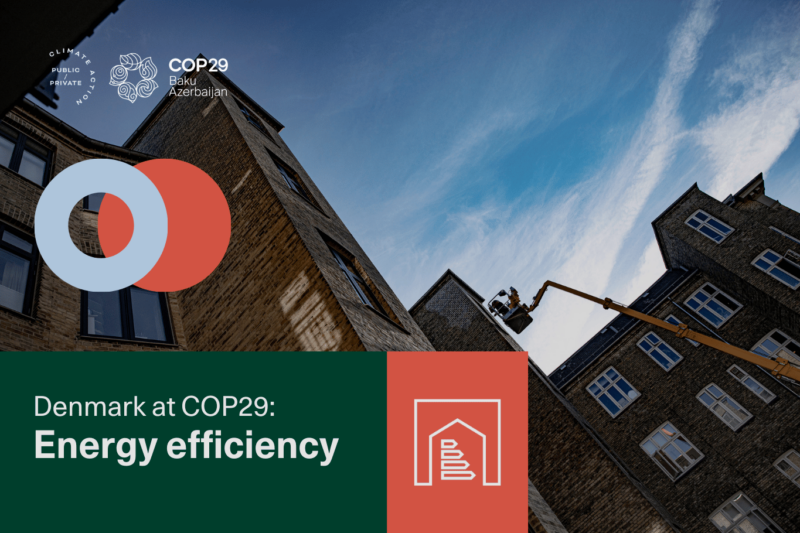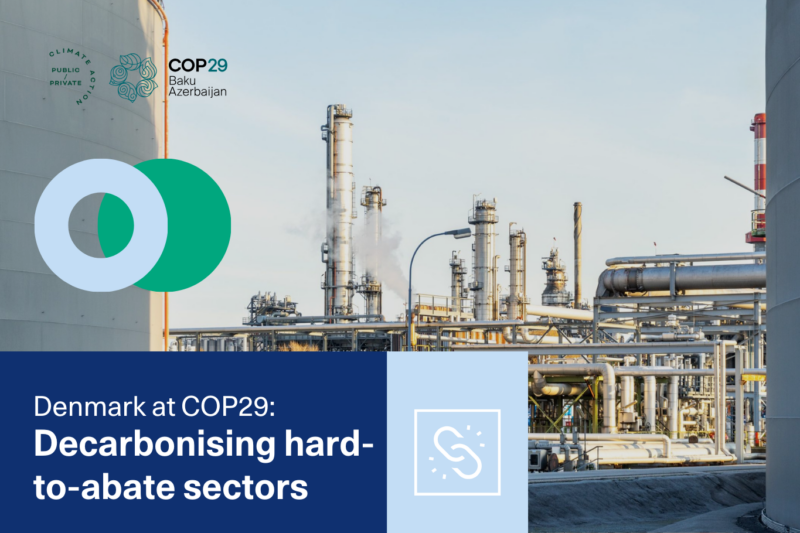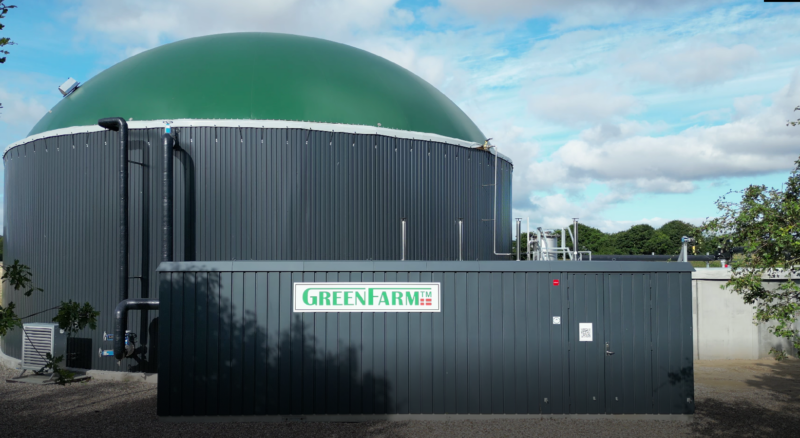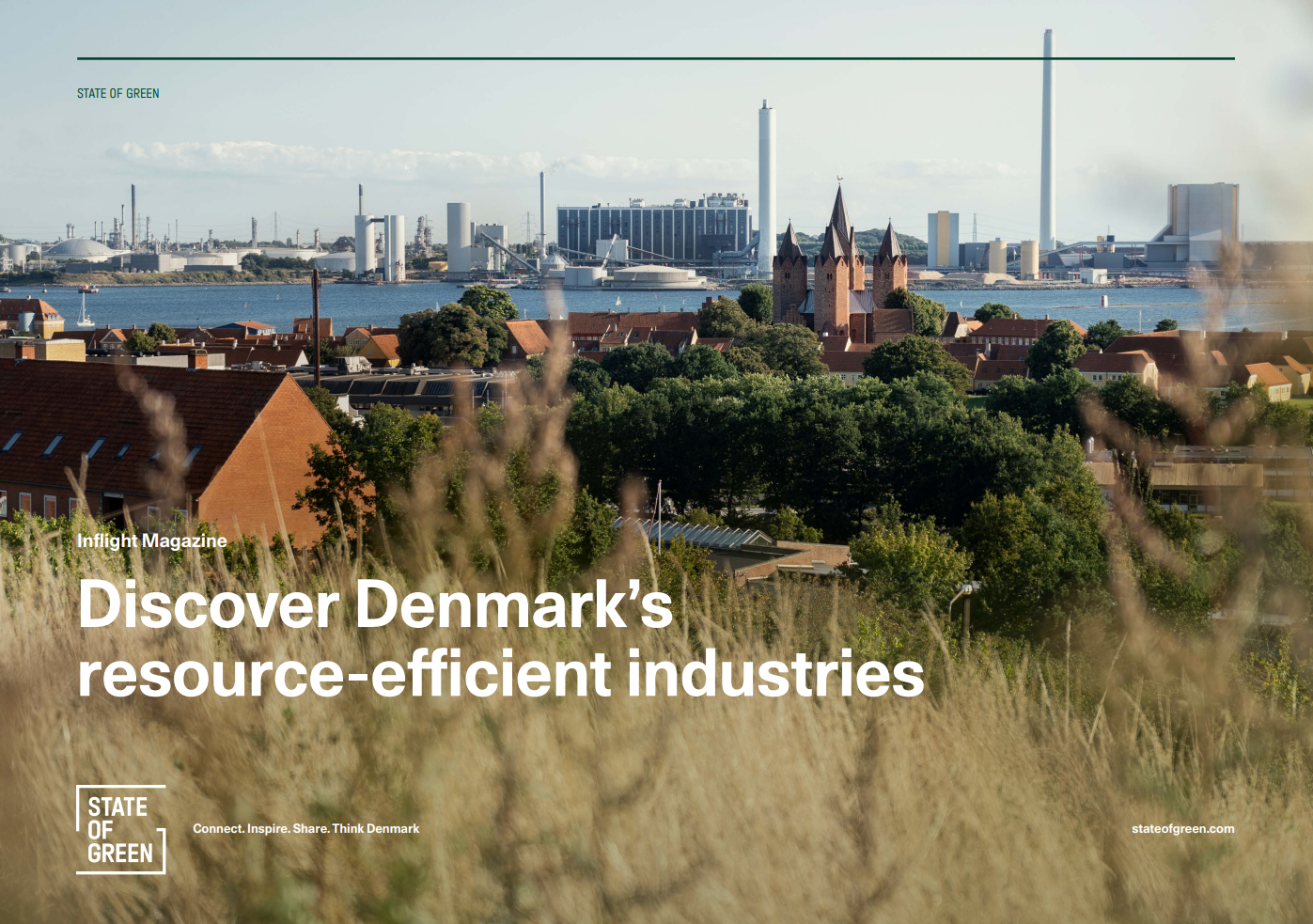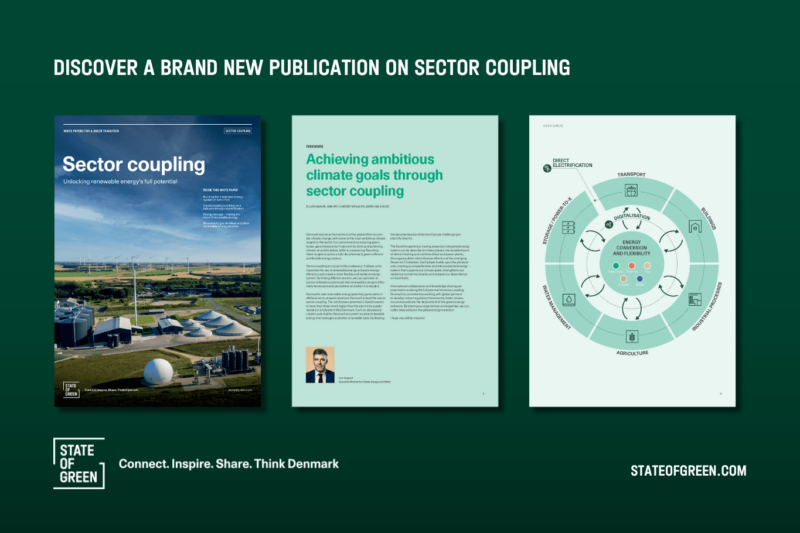Perspective
Energy efficiency in industry
Industry
A data-driven green transition in agrifood


Agriculture is facing major changes in the coming years
But to change, you must know how to focus your efforts. Data plays a key role in outlining possible starting points, understanding core challenges, making forecasts, and developing new production methods. Applying those insights lets both producers and decision-makers make informed choices about how to build frameworks for resource-efficient production.
Danish data and innovation infrastructure
The digital infrastructure within the Danish agrifood cluster provides fruitful conditions for a data-driven transformation. For decades, the agrifood industry has been collecting data to minimise on-farm wastage and to support development and innovation. This has resulted in vast databases within various farming sectors. Denmark’s farmers own comprehensive databases of agricultural statistics based on agriculture’s own innovation centre, SEGES Innovation. The innovation centre gathers all innovation projects, production management applications, and all specialists under one roof.
Denmark’s unique innovation model builds on a historically strong set-up involving one of the world’s oldest agricultural universities, agricultural schools, and innovation and consulting centres covering the entire production chain.
The benefits of this setup for data and innovation are twofold. First, the farmers themselves have significant ownership of the biggest undertakings in Denmark’s food production systems. This provides great opportunities for sharing data, aiding both research and production. Second, by having the different actors and institutions so closely connected, the distance from research to practice is short, enabling the transformative processes.
Progressive transformation on a solid foundation
In Denmark, the data-driven transformation is well underway. The first step of generating an overview of the challenge head is already complete. According to the Danish Climate Status and Projection 2023, the total emissions from the Danish agricultural sector was 14.48 million tonnes of CO2 equivalents in 2021, equal to 30 percent of the total Danish emissions that year. The figure also considers the energy consumption of the agricultural sector. This gives the sector a north star to lead their transformative efforts towards reaching national goals.
Additionally, in recent years, data in large quantities has become accessible through new technologies creating new opportunities for companies. From measuring the individual cow’s feed intake to calculating farm-specific climate gas emissions from crops and livestock production, the Danish agrifood cluster is making the most of the possibilities of data. Together with its stakeholders, it will continue to utilise data to produce more resilient food products with a lower climate and environmental footprint and drive the transition towards climate neutrality by 2050.
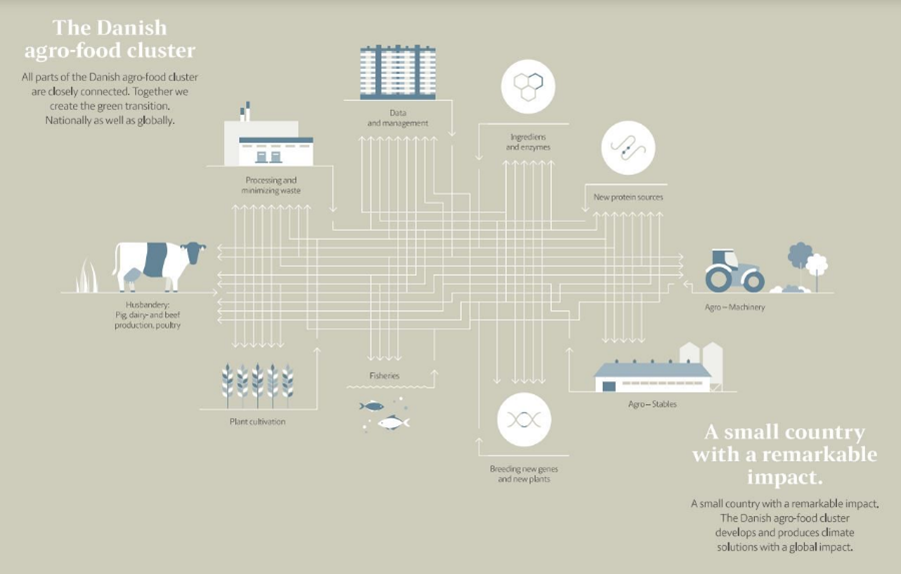
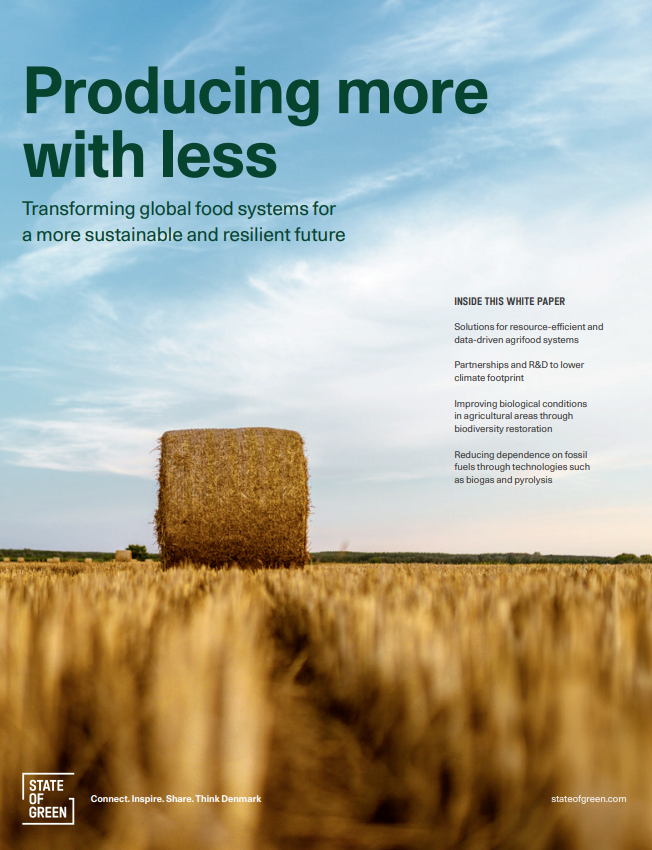
White paper: Producing more with less
This article is an executive summary from the publication “Producing more with less”.
Download the white paper and discover how Danish researchers, technology providers and players across agrifood systems strive to transform global food systems and produce more with less
Discover hereYou should consider reading
publications
Energy efficiency in industry
+7
Discover Denmark’s resource-efficient industries
8 September 2023Perspective
Sector coupling
+9

